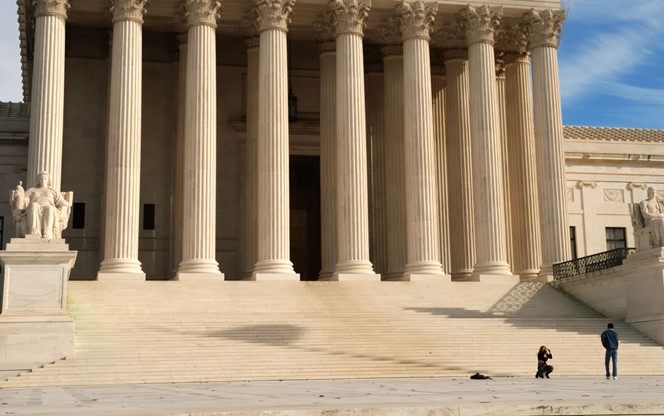

Compliance News | June 30, 2025
In Kennedy v. Braidwood Management Inc., the Supreme Court rejected the constitutional challenge to ACA preventive services recommended by the United States Preventive Services Task Force (USPSTF).
The decision means that non-grandfathered plans must continue to provide those preventive services in-network to participants without cost sharing, and plan sponsors do not have to change current plan provisions.

Share this page
ACA’s preventive services mandate requires non-grandfathered group health plans and insurers to cover certain preventive services with no cost-sharing on an in-network basis. The mandate requires in-network coverage of preventive services recommendations from three entities:
In Braidwood, the plaintiffs argued that the requirement to cover services recommended by the USPSTF is unconstitutional because USPSTF members are not appointed by the president. The plaintiffs contended that, according to the Appointments Clause of the U.S. Constitution, members of the USPSTF do not possess the requisite authority to mandate coverage rules. According to the plaintiffs, USPSTF members act as illegal “Principal Officers” without the constitutionally necessary Senate confirmation and presidential appointment.
In defending the preventive services requirement, the federal government argued that USPSTF members are actually “inferior officers” because the Secretary of the Department of Health and Human Services (HHS) can remove them at will and review their determinations. They argued that this level of control is sufficient for distinguishing USPSTF members as inferior officers because the HHS Secretary can alter or reverse any recommendations made by the USPSTF after the fact.
In June 2024, the Fifth Circuit Court of Appeals held that the preventive care requirement was unconstitutional because the USPSTF violated the Appointments Clause. We discussed this decision in our July 11, 2024 insight. However, this decision applied only to the plaintiffs in that case, keeping the preventive care requirement temporarily intact.
The Braidwood case rose to the U.S. Supreme Court in early 2025.
On June 27, 2025, the Supreme Court agreed with HHS and reversed the decision of the Fifth Circuit.
The Court noted that the preventive services recommendations issued by the USPSTF are of critical importance to patients, doctors, insurers, employers, healthcare organizations and the American people more broadly. The Court reasoned that USPSTF members remain subject to the Secretary of HHS’s supervision and direction, and the HHS Secretary is subject to the president’s supervision and direction. Consequently, the Court held that the USPSTF members are inferior officers whose appointment by the Secretary of HHS is fully consistent with the Appointment Clause of the Constitution. Therefore, presidential appointment and Senate confirmation are not required.
Interestingly, the Court found that during the one-year period after the USPSTF makes a recommendation, and before it becomes binding on plans, the HHS Secretary may request that the USPSTF reconsider or withdraw a recommendation. The Court noted that the HHS Secretary has plenty of time to remove and replace USPSTF members who refuse. Thus, per Braidwood, the Secretary alone can use its at-will removal power to stop any preventive services recommendation with which it does not agree.
Plan sponsors can relax in the knowledge that the current array of preventive services they provide based on the USPSTF A and B recommendations can continue unimpeded. No changes will be required to the current preventive services provided under the ACA requirements.
However, plan sponsors may face concerns in the future. Under current law, plan sponsors must implement a USPSTF recommendation for the first plan year beginning one year after the recommendation is issued.
The one-year delay period was designed to provide an implementation period for non-grandfathered plans and insurers to implement the USPSTF recommendations. If the HHS Secretary exercises authority to review or reverse USPSTF recommendations in the future, that could upset the implementation process plans currently use. If the HHS Secretary does reverse recommendations, it may become important for the departments (HHS, DOL and Treasury) to provide guidance as to whether this affects the implementation timeline.
Plan sponsors should continue to review the USPSTF A and B recommendations and implement them for plan participants, while monitoring the HHS Secretary’s oversight of the USPSTF in case of future reversals or disagreements.
Plans should consult with their legal counsel about their specific issues.

Compliance, Health, Multiemployer Plans, Public Sector, Healthcare Industry, Higher Education, Architecture Engineering & Construction, Corporate

Health, Compliance, Multiemployer Plans, Public Sector, Healthcare Industry, Architecture Engineering & Construction, Higher Education, Mental Health

Health, Multiemployer Plans, Public Sector, Healthcare Industry, Higher Education, Architecture Engineering & Construction, Corporate, Pharmaceutical, Healthcare Cost Management
This page is for informational purposes only and does not constitute legal, tax or investment advice. You are encouraged to discuss the issues raised here with your legal, tax and other advisors before determining how the issues apply to your specific situations.
Don't miss out. Join 16,000 others who already get the latest insights from Segal.
© 2026 by The Segal Group, Inc.Terms & Conditions Privacy Policy Style Guide California Residents Sitemap Disclosure of Compensation Required Notices